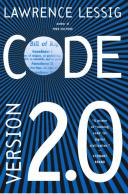Книга: Code 2.0
Surveillance
Surveillance
The government surveils as much as it can in its fight against whatever its current fight is about. When that surveillance is human — wiretapping, or the like — then traditional legal limits ought to apply. Those limits impose costs (and thus, using the market, reduce the incidence to those most significant); they assure at least some review. And, perhaps most importantly, they build within law enforcement a norm respecting procedure.
When that surveillance is digital, however, then it is my view that a different set of restrictions should apply. The law should sanction “digital surveillance” if, but only if, a number of conditions apply:
The purpose of the search enabled in the algorithm is described.
The function of the algorithm is reviewed.
The purpose and the function match is certified.
No action — including a subsequent search — can be taken against any individual on the basis of the algorithm without judicial review.
With very limited exceptions, no action against any individual can be pursued for matters outside the purpose described. Thus, if you’re looking for evidence of drug dealing, you can’t use any evidence discovered for prosecuting credit card fraud.
That describes the legal restrictions applied against the government in order to enhance privacy. If these are satisfied, then in my view such digital surveillance should not conflict with the Fourth Amendment. In addition to these, there are privacy enhancing technologies (PETs) that should be broadly available to individuals as well. These technologies enable individuals to achieve anonymity in their transactions online. Many companies and activist groups help spread these technologies across the network.
Anonymity in this sense simply means non-traceability. Tools that enable this sort of non-traceability make it possible for an individual to send a message without the content of that message being traced to the sender. If implemented properly, there is absolutely no technical way to trace that message. That kind of anonymity is essential to certain kinds of communication.
It is my view that, at least so long as political repression remains a central feature of too many world governments, free governments should recognize a protected legal right to these technologies. I acknowledge that view is controversial. A less extreme view would acknowledge the differences between the digital world and real world[39], and guarantee a right to pseudonymous communication but not anonymous communication. In this sense, a pseudonymous transaction doesn’t obviously or directly link to an individual without court intervention. But it contains an effective fingerprint that would allow the proper authority, under the proper circumstances, to trace the communication back to its originator.
In this regime, the important question is who is the authority, and what process is required to get access to the identification. In my view, the authority must be the government. The government must subject its demand for revealing the identity of an individual to judicial process. And the executive should never hold the technical capacity to make that link on its own.
Again, no one will like this balance. Friends of privacy will be furious with any endorsement of surveillance. But I share Judge Posner’s view that a sophisticated surveillance technology might actually increase effective privacy, if it decreases the instances in which humans intrude on other humans. Likewise, friends of security will be appalled at the idea that anyone would endorse technologies of anonymity. “Do you know how hard it is to crack a drug lord’s encrypted e-mail communication?” one asked me.
The answer is no, I don’t have a real sense. But I care less about enabling the war on drugs than I do about enabling democracies to flourish. Technologies that enable the latter will enable the former. Or to be less cowardly, technologies that enable Aung San Suu Kyi to continue to push for democracy in Burma will enable Al Qaeda to continue to wage its terrorist war against the United States. I acknowledge that. I accept that might lead others to a less extreme position. But I would urge the compromise in favor of surveillance to go no further than protected pseudonymity.




